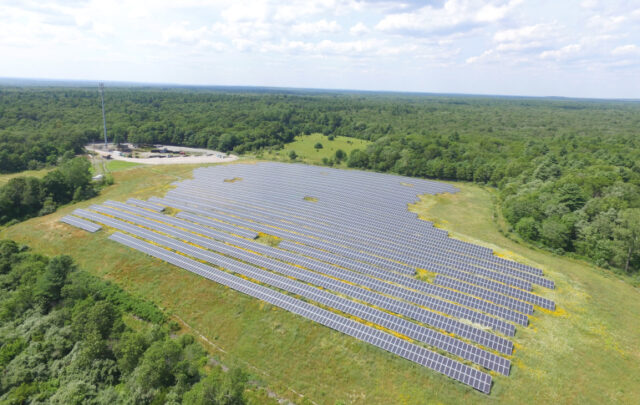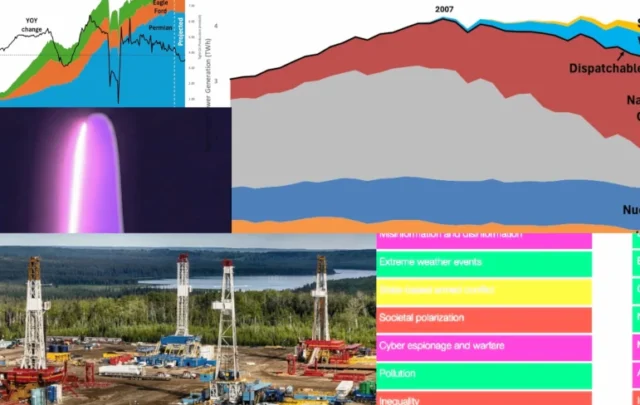The below is an open Letter to the Editor to the New York Times.
Rarely is the public treated to such inaccurate, misleading and unhelpful “journalism” as in “There will be fuel” by New York Times correspondent, Clifford Krauss (New York Times, November 17, 2010) , even in this era of political spin and smoke and mirrors surrounding energy.
Let’s begin with the article’s concluding comment:
“When you add it up,” Mr. Morse noted, “you get something that very closely approximates energy independence.”
The facts of the matter are that no nation on earth is more dependent on imported oil than the U.S. Although consumption has declined somewhat, due to the Great Recession, imports accounted for more than 61 percent of U.S. oil consumption in 2009. Net 2009 U.S. imports of 11.5 million barrels per day exceeded China’s TOTAL OIL CONSUMPTION of 8.6 million barrels per day by 33 percent. Americans, with a population of 310 million, consumed 18.7 million barrels per day in 2009 compared to China, a country with 1.32 billion people, which consumed a mere 8.6 million barrels per day. This works out to 22 barrels of oil consumption per American in 2009 compared to 2.4 barrels per person in China.

Although American oil production increased slightly in 2009 from a recent low in 2008, it is down 36 percent from its all time peak in 1970. Meanwhile oil imports are up by 358 percent since 1965. The vaunted 100,000 barrel per day growth in shale oil production by 2013 in your article, if it occurs, would amount to half a percent of current U.S. consumption.
The search for subsalt oil in deepwater locations in the Atlantic, deepwater exploration in the Gulf, and Arctic exploration, represent the last frontiers, as less hostile locales have already been thoroughly explored and exploited. Enough growth in deep water production in the Gulf of Mexico to offset declines in the onshore U.S. fields remains to be seen, given the fallout from BP’s Macondo blowout. The Santos Basin fields in the Atlantic off of Brazil may contain 40 billion barrels, and the mean estimate in the recent circum-Arctic study by the USGS was 90 billion barrels. Added together these equal perhaps four years of world consumption at current rates of 31 billion barrels per year – the catch being that this oil, if it exists, will take decades to produce.
Groups other than the uber-optimists at CERA cited in your article have expressed concern about deepwater production by non-OPEC countries, which constitutes much of the future potential for new production, and about the implications of peak oil production globally. There are many other credible recent reports on the implications of peak oil which the author of this article chooses to ignore.
Notwithstanding the IEA’s recent projection of increases in world oil production to 99 million barrels per day by 2035, this represents a stunning decline in IEA estimates of future oil production which as recently as 2005 were at 118 million barrels per day by 2030. A closer look at how the recent IEA oil production estimates are to be achieved reveals that all growth in its forecasts will be due to unconventional oil (including biofuels) and natural gas liquids, and that conventional crude production will remain on a plateau below 2006 production levels through 2035 (a highly optimistic assumption in my view).
With respect to shale gas production in the U.S., which the author hypes along with LNG, U.S. gas production in 2009 was still four percent below the 1973 gas production peak. The U.S. is still a net gas importer via pipeline from Canada and via LNG from many countries. Despite the hype of people like Aubrey McClendon, the CEO of shale gas producer Chesapeake, who was recently featured on 60 Minutes, and who testified before Congress that U.S. gas production could increase by 50 percent or more in the next decade, the realities of shale gas make this unlikely. Shale gas wells have very high decline rates, between 65 and 85 percent in the first year, are high tech and hence expensive, utilize large amounts of water, and have environmental costs that are now becoming evident. The EPA has begun an extensive investigation of the environmental issues surrounding “fracking,” upon which shale gas production depends.
In summary, oil and gas are finite resources that are being consumed at unprecedented and growing rates. Despite what your article says, the U.S. is the worst offender and is highly vulnerable to future energy price and supply shocks. The growth trajectory of the already high consumption levels in the industrialized world and the rapid growth in consumption in the developing world is patently unsustainable. Articles such as this falsely promote complacency and thus are an extreme disservice to understanding the energy sustainability dilemma facing the World. The premise of this article that the U.S. is approaching “energy independence” could not be further from the truth.
J. David Hughes
David Hughes is a geoscientist who has studied the energy resources of Canada for nearly four decades, including 32 years with the Geological Survey of Canada as a scientist and research manager. He developed the National Coal Inventory to determine the availability and environmental constraints associated with Canada’s coal resources. As Team Leader for Unconventional Gas on the Canadian Gas Potential Committee, he coordinated the recent publication of a comprehensive assessment of Canada’s unconventional natural gas potential. Over the past decade, he has researched, published and lectured widely on global energy and sustainability issues in North America and internationally. He is a board member of the Association for the Study of Peak Oil and Gas – Canada and is a Fellow of the Post Carbon Institute.
image source: The Associated Press
Keep the information flowing: Donate to Post Carbon Institute
Stay connected: Receive our monthly e-newsletter
Reposting: See our reposting policy
























